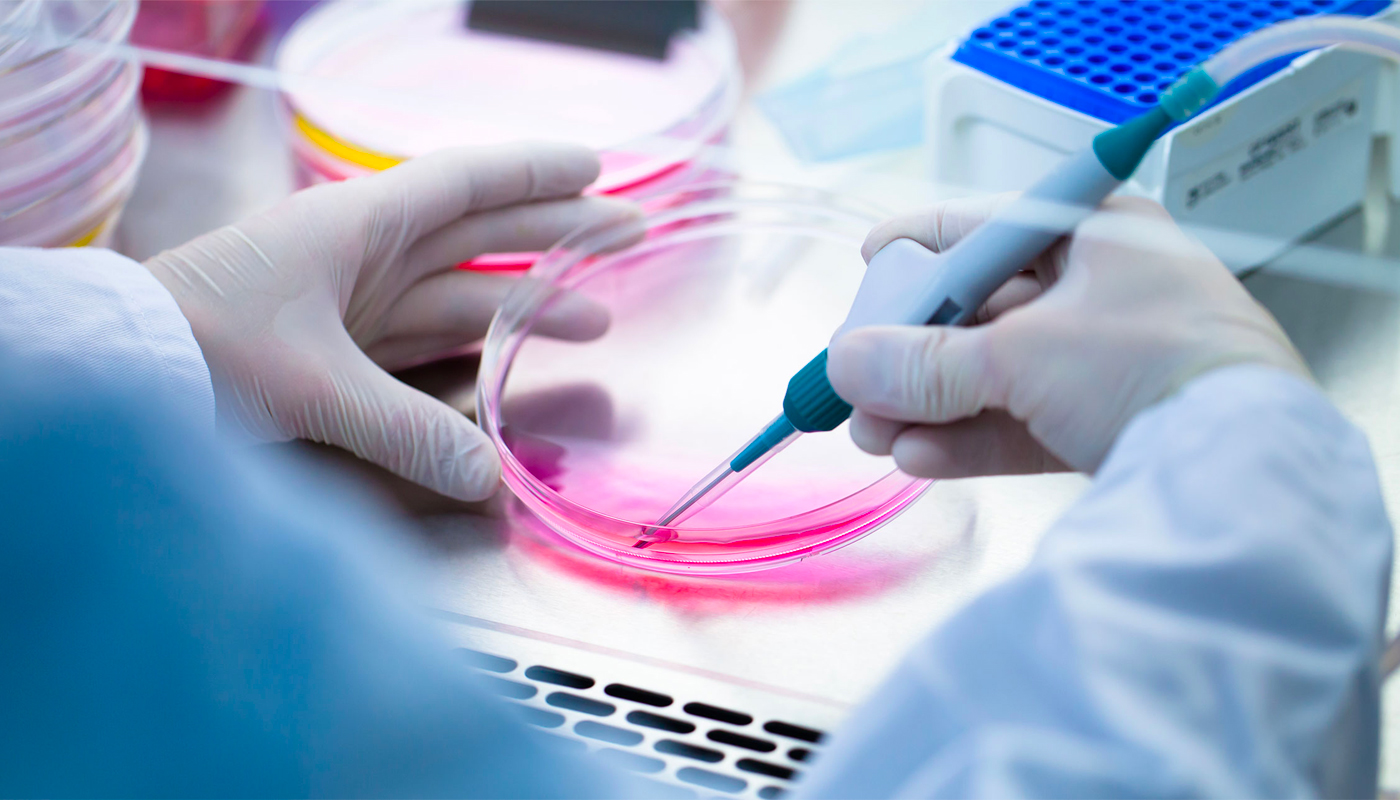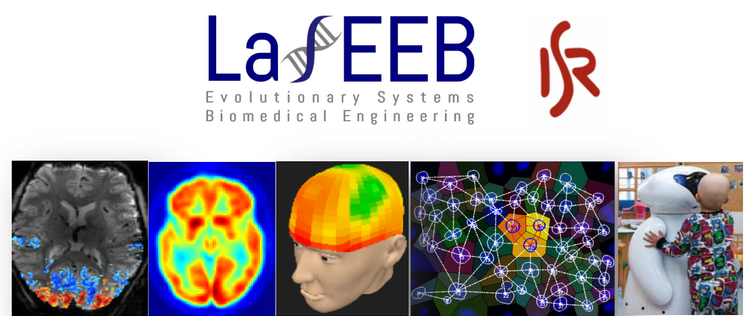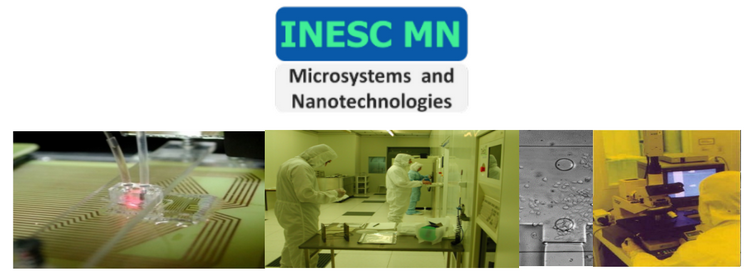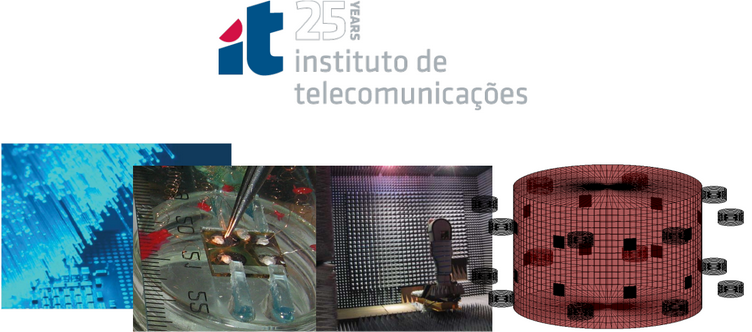Research and Innovation

Research and Innovation
DBE participates in several research centres of excellence where its teachers develop scientific activities in the Scientific Areas of the department.
| iBB - Institute for Bioengineering and Biosciences |
|---|
 The Institute for Bioengineering and Biosciences (iBB) is a research unit at Instituto Superior Técnico (IST), Universidade de Lisboa (UL) , classified as Excellent in the last international evaluation by FCT and ESF , aiming at excellence in research and advanced education in biotechnology by responding to the challenge of exploring innovative approaches to key scientific and technological questions in biosciences and bioengineering and of transforming scientific knowledge into tangible innovation. The mission of iBB is to promote cross disciplinary research, development and education encompassing the biological and engineering disciplines for the benefit of the industrial, environmental and health sectors. iBB aims to create a research and educational environment to have an international impact, and to produce the next generations of leaders in Biotechnology. This Institute integrates four research groups: - BioEngineering Research Group (BERG), - Biological Sciences Research Group (BSRG), - BioSpectroscopy and Interfaces Research Group (BSIRG) and - Stem Cell Engineering Research Group (SCERG), The combined activities of the research groups, aim at cutting edge research and strategic advanced education in fundamental and applied biological sciences, biotechnology and bioengineering. The research activities of BERG are focused on four core Research Programs on: Bioprocess and Biosystems Engineering, Bioseparation Engineering,and Molecular Bioengineering, whereas the research activities of BSRG are essentially focused in the fields of Molecular and Cellular Biology, Functional and Comparative Genomics and Microbial Biotechnology. BSIRG focuses on Molecular and Cellular Biophysics, on Fluorescence and Surface Spectroscopies, on Cosmochemistry and Astrobiology, and on the Synthesis of Molecules, Polymers and Nanoparticles, having in view both fundamentalscience, as well as Health and Industrial Applications. SCERG relies on a cross-disciplinary strategy combining Bioprocess Engineering with Stem Cell Biology focusing on six major Research Themes: Bioreactor and Microcarrier Technologies for Stem Cell expansion and differentiation; Clinical Manufacturing of Stem Cell-based Therapies; Bioprocessing of Human Pluripotent Stem Cells for Regenerative and Precision Medicine; Gene Delivery Strategies to Modulate Stem Cell Function; Designing Biomaterials and Devices for Stem Cell Engineering; Stem Cell Biosystems Engineering. The iBB strategic program is focused on advancing knowledge, developing innovative tools, technologies and materials, solving pressing challenges and training human resources within two main areas: Human Heath and Bioeconomy Challenges. |
| LaSEEB - Biomedical Engineering Laboratory at ISR-Lisboa |
|---|
 LaSEEB is the Biomedical Engineering Laboratory at the Institute for Systems and Robotics - Lisboa (ISR-Lisboa), an FCT R&D unit at Técnico. ISR-Lisboa is home to more than 40 PhDs and carries out multidisciplinary research addressing key scientific questions in robotics and engineering systems, with impact in ocean, urban, aeronautic/space and biomedical engineering. ISR-Lisboa aims to push the frontiers of knowledge and to transfer it to the industry, by developing state-of-the-art engineering projects. ISR-Lisboa has a long track record of participation in EU and other international projects, as well as in world-class doctoral training programs with top universities (e.g. dual/joint degrees with MIT, EPFL, CMU). LaSEEB is dedicated to R&D in Biomedical Systems and Signals, particularly focused on biosignals, biomedical imaging, and modeling and simulation of biological and population systems. A special emphasis is given to the study of the human brain, particularly using neuroimaging, with applications in disease, sleep and cognition, as well as neurofeedback applied to personal development and to therapy and rehabilitation, and also in pathologies such as epilepsy, dementia, movement disorders and cerebrovascular disease. The research is done in collaboration with top national and international institutions in the area of medicine and biology, such as the Instituto de Medicina Molecular, Hospital da Luz and the Fundação Champalimaud, École Polytechnique Fédérale de Lausanne, University College London, King's College London, University of Oxford, or o Martinos Center for Biomedical Imaging da MGH / Harvard Medical School. . |
| INESC-MN - Instituto de Engenharia de Sistemas e Computadores - Microsistemas e Nanotecnologia |
|---|
 INESC Microsistemas e Nanotecnologias is a private, non-profit research and development center whose core research activities are in the areas of nanoelectronics, information technology (magnetic data storage and non- volatile memories), magnetic thin films and nanostructures, thin film MEMS, large area electronics and sensors, and integrated lab-on-a-chip biosensors, cell-chips and microsystems-based biomedical devices. INESC-MN operates a 250 m2 Class 100 and Class 10 Cleanroom for micro and nanofabrication constructed in 1992/1993. Available micro and nanofabrication for feature sizes down to 1.2 μm (optical) and 20 nm (e-beam). Extended experience in soft lithography and microfluidics. INESC MN coordinates the FCT-Doctoral Programme on Advanced Integrated Microsystems (AIM). Recently, INESC MN became the Lisbon node of the Micro&NanoFabs@PT of the Roteiro Nacional de Infraestruturas (RNIE). The laboratory currently has 7 senior PIs, 9Researchers, 15 PhD students, ~10 master students and 3 cleanroom engineers. INESC MN is an associated research institution and includes faculty from Instituto Superior Técnico (IST). DBE students at the 2nd cycle (Master) and 3rd cycle (Doctoral) level do thesis research at INESC MN mostly in the field of microfluidics – including miniaturized biological separation and microreactors, lab-on-chip systems, biosensor development, and cell-chips. Main applications of these studies are in microsystems for food safety and point-of-care health applications, and in biochips for screening of cellular processes. An important part of this work is performed with collaborations of researchers from iBB (Técnico), IMM (Faculty of Medicine, University of Lisbon) and the iMed.ULisboa (Faculty of Pharmacy, University of Lisbon). |
| IT - Instituto de Telecomunicações |
|---|
 Instituto de Telecomunicações is a private, non-profit organization of public interest established in 1992 with a wide core of research interests spanning 4 main areas: - Wireless Communications; - Optical Communications; - Networks and Multimedia; - Basic Sciences and Enabling Technologies. Research activities are supported on over 40 research groups distributed through 3 sites (Lisboa, Aveiro and Coimbra) and 4 branches (Porto, Covilhã, Leiria and Lisboa) located in 6 Portuguese universities and 1 Portuguese polytechnic that host more than 300 PhD researchers (6 IEEE Fellows), 250 PhD students and 200 MSc students. The Instituto de Telecomunicações also has a direct partnership with one public telecom operator and one telecom equipment manufacturer. IT is actively involved in fundamental and applied research both at national and international levels. DBE students at the master and doctoral level do thesis research at Instituto de Telecomunicações, Lisbon site, mostly in the areas of Network and Multimedia, Basic Sciences and Enabling Technologies, covering the fields of imaging, signal processing, organic electronics, bioelectronics, biomedical instrumentation, pattern recognition and machine learning. |
| INESC-ID - Instituto de Engenharia de Sistemas e Computadores, Investigação e Desenvolvimento Lisboa |
|---|
 INESC-ID, Instituto de Engenharia de Sistemas e Computadores, Investigação e Desenvolvimento em Lisboa, is dedicated to Research & Development in the fields of Information Technologies, Electronics, Communications and Energy. INESC-ID is a non-profit institution, privately owned by IST and INESC, officially declared of public interest. It was created as a result of a reorganization of its parent institution INESC. Since December 2004, the institution has the status of “Laboratório Associado”, by FCT. The main objectives of INESC-ID are to integrate competences from researchers in electrical engineering and computer science to advance the state of the art in computers, telecommunications, information systems and energy and to perform technology transfer, also through the support of technology-based startups, and to provide technical support either through basic research or applied research and advanced education. Focusing INESC-ID’s expertise in research and development, the challenge is to produce top quality research within the holding and generate wealth from this research. A clear definition of specific measuring success metrics has been core to this challenge. Examples of this success are the increasing scientific production within top journal and conferences, PhD dissertations, focus on internationalization through an active participation in international networks, such as IEEE and ACM, cooperation with the European industry through international research and development projects and boost the launch of high technology startups. Currently, we integrate more than one hundred PhD researchers and two hundred post-graduation students organized in five main research areas: - Computer Systems and Communication Networks; - Embedded Electronic Systems; - Information and Decision Support Systems; - Interactive Intelligent Systems; - Energy Systems. |